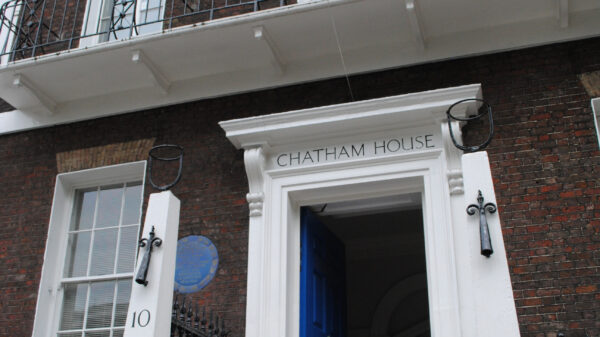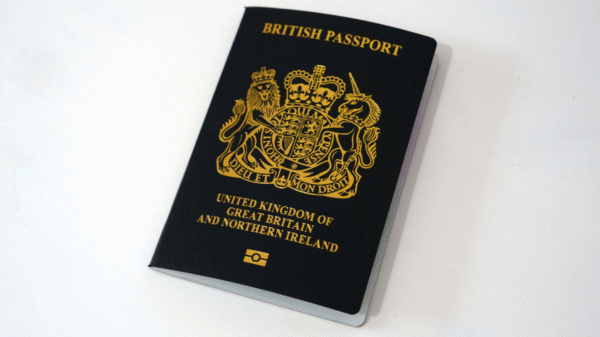Staff writer Katharina Kayser reflects on the German-British relationship amidst a new Bundestag and how changing German leadership and security issues in a post-Brexit Europe will define their future.
At the beginning of February, British Prime Minister Keir Starmer welcomed German Chancellor Olaf Scholz at his country residence in Chequers. They reflected on the progress made between Germany and the UK in recent months and reaffirmed their commitment to further strengthening their bilateral partnership. With the German general elections having taken place on 23 February, it is a perennial time to reflect on the special relationship between both countries.
Starmer and Scholz – a cautious relationship?
When looking at both current leaders, there are a lot of obvious similarities. Scholz as well as Starmer head a centre-left government. In times of massive crises, they have faced similar challenges at home and abroad. Both face rising right-wing sentiments and populism is their respective countries. Contrary to his predecessor, who only visited Germany in his 18th months of being in office, Starmer already met Scholz five times in his first two months as PM.
Yet, instead of appreciating these similarities, Politico suggests that Starmer is looking at Scholz, who has led government since 2021, not as guidance but as an example of how not govern. Given similar challenges in the face of poor economic outputs, migration, inflation and climate change to only name a few, Starmer might be afraid to suffer a similar fate like Scholz.
According to a Dowing Street official, who was granted anonymity to speak truthfully, spoke to Politico stating that Starmer wants to “avoid playing into the hand of the far right by repeating errors that Scholz has made.”
The coalition government with the Social Democratic Party (SPD), the Alliance 90/The Greens (Grüne) and the Free Democratic Party (FDP) broke in November 2024, the same day that Trump was elected. Scholz clearly lost the elections with his party having a historically bad result of 16.4 %. Even though the Christian Democratic Union/Christian Social Union (CDU/CSU) won 28.5%, and has been declared the winner of the 2025 elections, the actual winner is the right wing Alternative for Germany (AfD) which doubled its results from 10.4 in 2021 to 20.8% in 2025.
This calls into question the future of the German-British relationshipm and how the two countries can cooperate in a post-Brexit world and in the face of mounting challenges to European security.
Brexit as a turning point?
The German-British relationship has always been strong yet Brexit changed this dynamic drastically. Chancellor Olaf Scholz confirmed that after the British turbulent departure form the Union, there was hardly any bilateral contact. Sébastien Maillard, associate fellow at Chatham House Think Tank, spoke to Politico about the effect of Brexit on their partnership, stating:
“We know how much Germany was upset about Brexit from the very start, and really misses this partner […] France as well but not to the same extent. I’m sure Germany can be a good advocate within the EU [European Union] of a UK comeback.”
Sébastien Maillard, Associate Fellow at Chatham House
As both Scholz and Starmer highlighted in their meeting in August 2024 in Berlin, there is a deep connection between both countries due to shared common values and interests. Since the new Labour government aims to rebuild the UK’s relationships with the EU post-Brexit, seeking a closer cooperation with the European power is not suprising. As early as last August, there were thus talks reagrding installing regular Regierungskonsultationen (government consultations) between the UK and Germany.
On multiple occasions, Starmer has made clear that the UK and the EU are facing similar challenges and need to increase co-operation in order to provide stability and efficiency. The Prime Minister followed up on this promise with several visits to EU member states as well as visits to the EU Council.
In a joint press confrence held on 23 October 2024 with UK Defence Secretary John Healey and German Defence Minister Boris Pistorius, after the signing of the Trinity House Agreement to the strengthen German-British defence relationship and support European security, Healey noted that:
“Today really is only the start of new, deeper relations between our two nations.”
Is the German-British economic relationship in recovery?
In 2024, Germany waas the UK’s second largest trading partner, accuonting for 8.5% of total UK trade. This is one-sided though since in 2023, the UK was only Germany’s 8th most important tarding partner, after the U.S., France and China. This suggests that Germany is more important for the UK than vice-versa.
One explanation for this may be that most of Germany’s trade is conducted with its European Union partners. When the UK left the EU trade deal, it became subject to more regulations and obstacles. In Brexit’s aftermath, the EU and UK signed the a Trade and Cooperation Agreement regulating trade amongst all member-states and the UK. In 2021, for example, imports from the UK to Germany were down 56% compared with the previous year. This suggests that the UK might miss out on many deals due to difficulties post-Brexit.
There are several bilateral organisations active in both countries that support businesses to settle in the each others country. One such organisation is the Department for Business, which supports British companies operating in Germany. They also provide important information for German businesses to expand to the UK.
Annually, the German-British Chamber of Industry & Commerce answers 8000 similar requests of enquires to help businesses. Recent trends suggest that German companies will increase their investment in UK markets due to strategic advantages that have arisen as a consequence of their growing financial agreements. Therefore, bilateral support within these trade organisations will become even more vital in the future. One could therefore argue that both countries are reattempting to become even stronger trading partners than ever before in a post-Brexit world.
Defence cooperation – a realistic plan?
After the Russian invasion of Ukraine and the re-welcoming of U.S. President Donald Trump back into the oval office, defence has been a topic of intense debate. As Scholz and Starmer made clear in their August 2024, both countries are in favour of a closer cooperation in the defence and security sector. German and British units have already worked together in Kosovo, Afghanistan and in the fight against the Jihadist group, the Islamic State (IS).
Yet, for a long time now, the bilateral defence and military relationship has been underdeveloped, which is why the countries reinvestment in a strong defence relationship is essential. The EU lost a great military power in the UK leaving the Union. Germany, as a historically restrained military actor, is thus in need of strong cooperations with leading figures such as the United Kingdom, especially through their connection with the North Atlantic Treaty Organisation (NATO).
This is why the Trinity House Agreement in London is a landmark defence agreement that constitutes a “deal which forges closer cooperation between our militaries and our industries, which contains immediate actions and longer-term ambitions.” Healey continues the sentiment when he states:
This deal is part of Labour’s attempt to reset UK-EU relations. Moreover, Scholz’s recent visit to London was used to reaffirm the importance of coordinating defence production across Europe due to the Russian invasion of Ukraine. While the new German government is already facing several issues concerning the financing of the military for the coming years, defence spending will need to be a top priority as the most likely candidate for chancellor, Friedrich Merz, has proclaimed already shortly after he won the recent elections.
A cultural relationship on an eye-to-eye level
The 1963 Elysée Treaty, also known as frienship treaty and the people-to-people connections, between the two countries run as deep as a common TV channel, bilateral youth exchanges and a multitude of cultural initaitves. Even though, the British-German cultural relationhip is not based enitrely on any treaty, it connects millions of people to each other.
For instance in London, one can find the DAAD, the Deutscher Akademischer Auslands Dienst (German Academic Exchange Service) or the Goethe Institut both in Glasgow and the capital. There are 420 Städtepartnerschaften (citypartnerships) between German and British cities, some of them existing since 1947. Edinburgh and Munich, for instance, have been partners since 1954 and have a vivid cultural exchange. Moreover, there are many Fachaustausche (topics-based projects) between several cities. Heidelberg and Cambridge, for example, conduct joint research initatives regarding city planning and sustainability. Prime Minister Starmer had this to say about their growing partnership:
“We see a great, brilliant future for both our countries. Both are amazing countries that come closer together than ever before, the strongest strategic partners in the world and on a global level.”
UK Prime Minister Keir Starmer
The UK and Germany offer many different cultral activities. It is also nothing surprising to see German school classes in London or Edinburgh. Youth exchanges are an important feature of the countries’ relationship. The Bilateral youth exchange office on the UK-German connection provides support for youth exchanges. With 168,000 British citizens living in Germany as of 2021, and around 135,000 Germans residing in the UK, cultural exchange is not only in the short-term, it is a home to many between the two countries.
Future outlook
Making any future predictions about the relationship between the UK and Germany is fairly easy regarding their shared values, close economic and cultural ties and general freindly sentiment. Yet, the snap elections in Germany might lead to a centre-right government led by Friedrich Merz . The Institut for Government went as far as to say that “Keir Starmer [may loose] a political soulmate but might gain a more useful ally.”
Just like Theresa May was nicknamed Maybot, Scholz was dubbed Scholzomat as both personas were rather controlled and boring. Who knows what the comparison of Starmer and the future chancellor of Germany will be like? What is clear is that Starmer is looking forward to working with Friedrich Merz, as his congratulations to Scholz’s successor highlights.
Katharina Kayser is a second year "European Studies with the French Pathway" student at King's College London.



















